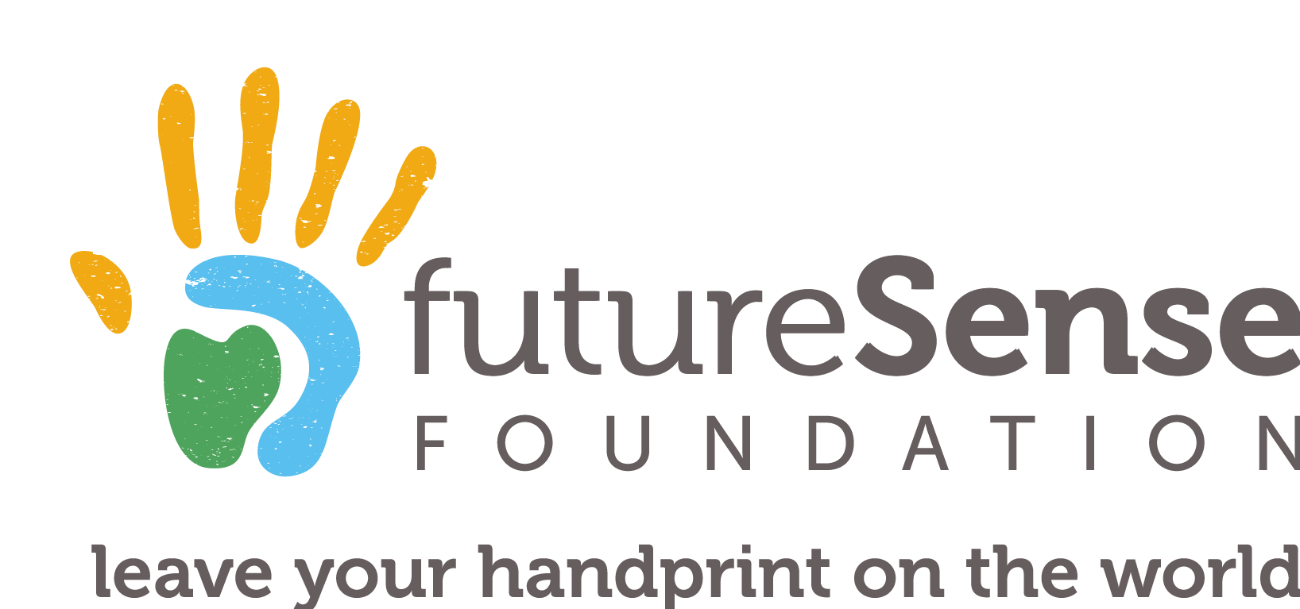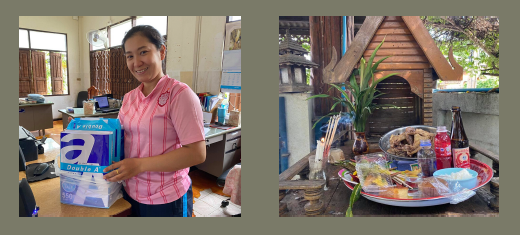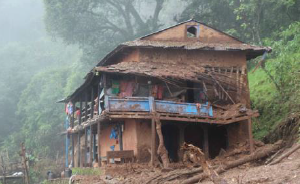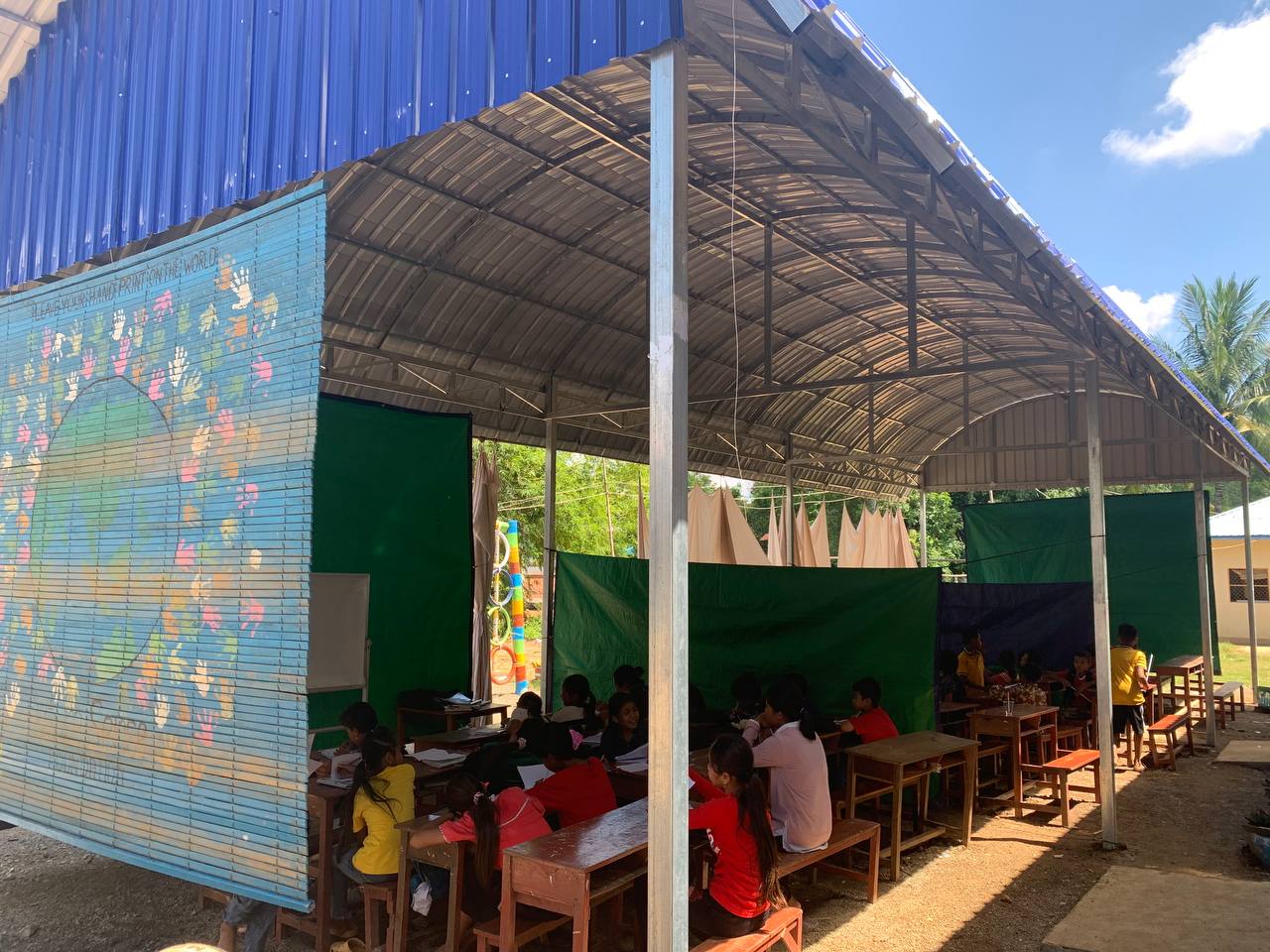Written by Beth Madden, Cambodia VMPC.….
This year, Cambodia celebrated 40 years freedom from the Khmer Rouge, led by Pol Pot. Between 1974 and 1979, approximately 2 million Cambodians (or 25% of the population) lost their lives in the Khmer Rouge’s attempt to return Cambodia to its agrarian roots and remove anyone or anything connected to religion or the West, such as education or educated individuals. Following this disaster, Cambodia was forced to rebuild its society and economy from virtually nothing.
40 years later and the World Bank has recognised Cambodia as a lower middle-income nation, a huge achievement for the country. Between 1995 and 2017, Cambodia’s economy has sustained an average growth rate of 7.7%, making it the sixth fastest growing economy in the world. However, this economic growth has not necessarily been transferred to the most marginalised in Cambodia.
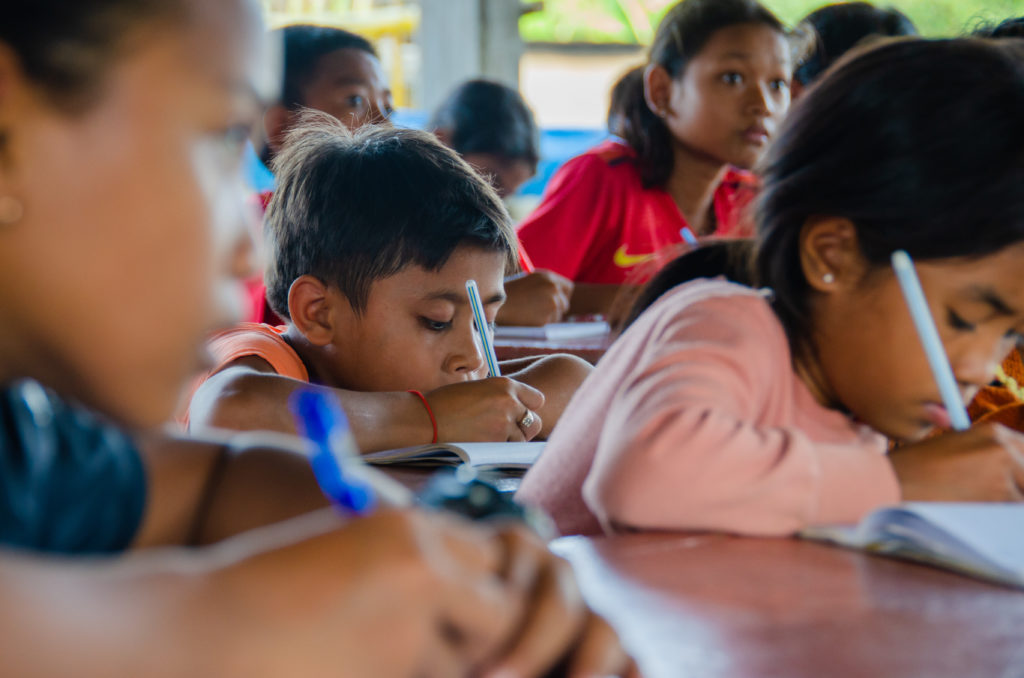
Despite achieving the MDG of halving poverty between 1995 and 2010, 13.5% of households remain below the World Bank’s poverty line; of the 2.25 million people living below the poverty line, approximately 90% live in the countryside, demonstrating the socio-economic inequalities that exist across the nation. FSF Cambodia’s development programmes focus on three key areas: Education, Health and Well-Being and Livelihoods and Income Generation. In addition, the initiatives utilise two cross-cutting themes of gender equality and environmental sustainability to over-arch all the projects conducted.
Education:
Cambodia is falling behind the majority of middle-income nations in terms of education, with only 57% of youths completing lower secondary and the average years of schooling sitting at 4.8 years. Although this has doubled since 1990, there are still vast inequalities in schooling based on social, economic and geographical factors.
The UN Sustainable Development Goal (SDG) 4 advocates to “Ensure inclusive and equitable quality education and promote lifelong learning”, however the Human Development Index (HDI) measurement suggests an inequality of 27.3% in education in Cambodia. Gender is an example of that inequality with females receiving on average 3.8 years of schooling, compared to 5.6 for males. Cambodia is challenged with assuring quality education and financial and skill-based resources for marginalised children in rural communities.
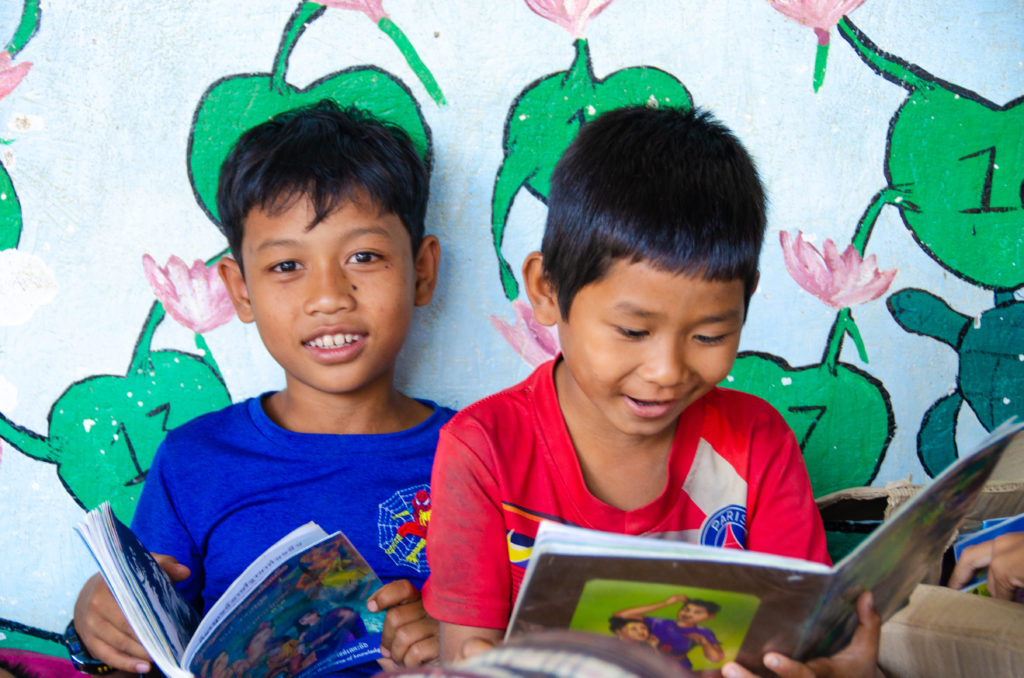
The FutureSense Foundation aims to close socio-economic inequality gaps, by committing itself to program delivery in partner schools in the Ek Phnom district on aspects relevant to conversational English, life skills and teacher training..
The FutureSense Foundation recognises that in a globalised world, multilingualism plays a significant role in obtaining greater employment opportunities, especially in a country with a flourishing tourism sector, therefore conversational English sessions by native speakers are essential to give youths an advantage following education. Furthermore, life skill sessions which include creative arts, STEM and sports, acknowledge that the Cambodian education system predominantly uses rote learning, a technique which encourages memorisation by repetition.
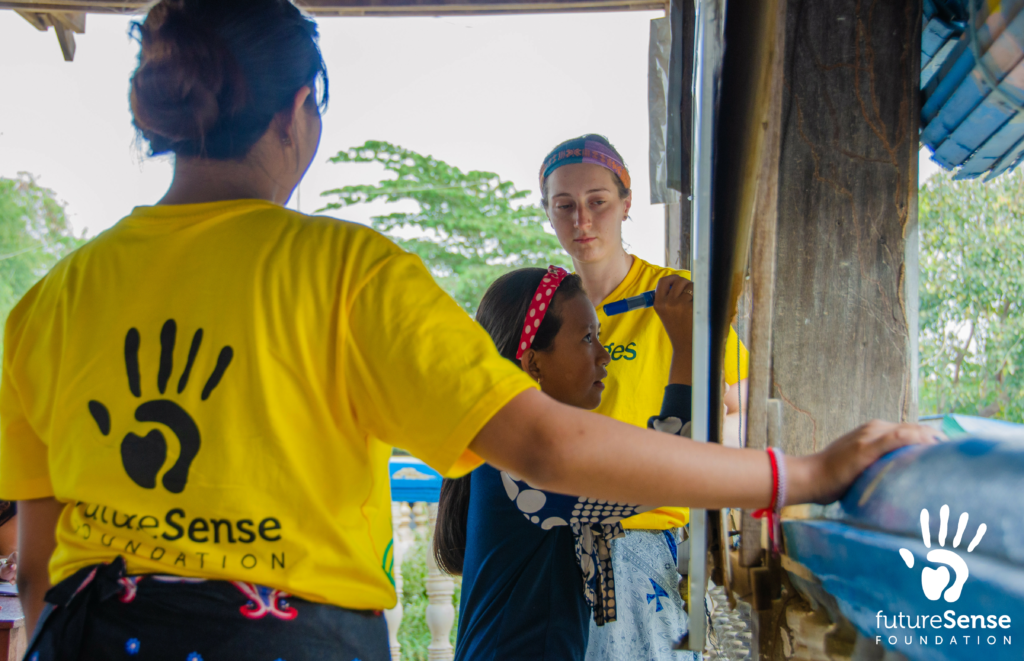
Life skill programmes encourage critical thinking, creativity and self-awareness in children and thus positively influence their personal development.
Health and Well-Being:
UN SDG 3 states that “Ensuring healthy lives and promoting well-being at all ages is essential to sustainable development”. In Cambodia, progress has been made towards this goal, for example life expectancy has increased by 15.7 years since 1990, however, it still only sits at 69 years.
FSF Cambodia provides interventions in communities and partner education centres focusing on aspects of health, such as first aid, nutrition, WASH and infectious diseases. Interventions recognise that approximately 64% of deaths are caused by non-communicable diseases, such as diabetes and heart disease, and therefore, aim to supply information regarding nutrition and healthy livelihoods. Free mobile clinics have also been organised to increase prevention of non-communicable and infectious diseases. Community interventions also include information on child nutrition, as in Cambodia, 1 in 3 children under the age of 5 suffer from stunting. In response, the FutureSense Foundation funds the provision of drinking water and snacks at their partner supplementary education centers, to decrease malnutrition amongst student beneficiaries and increase their retention of lesson content.
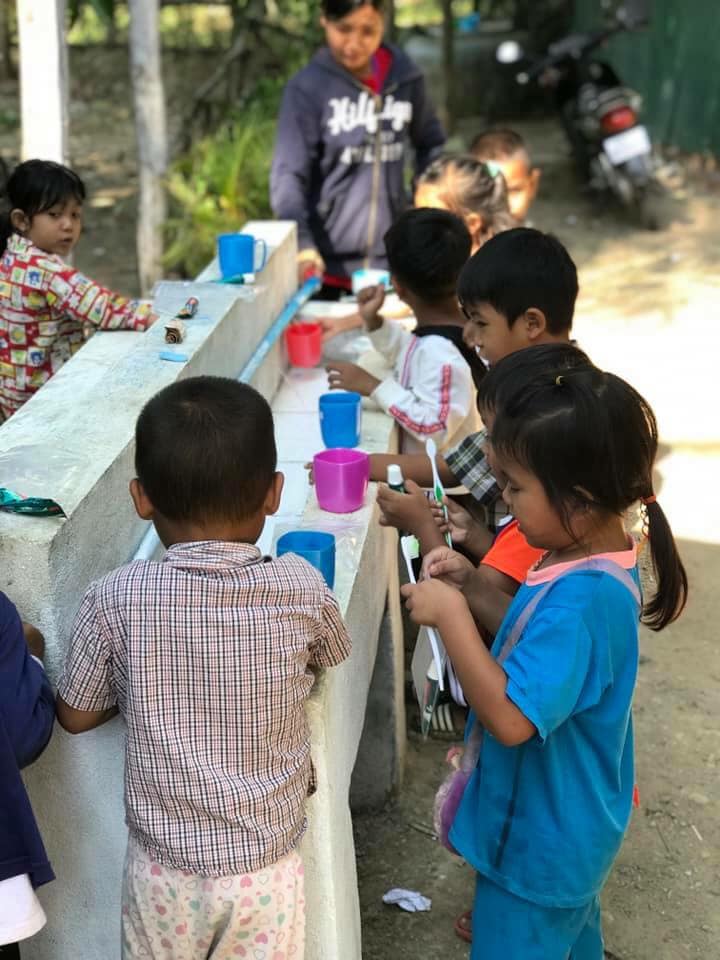
Further in relation to health, FSF Cambodia carries out WASH interventions, these include providing information regarding safe water usage and appropriate hygiene practices, as well as funding hygiene-relevant infrastructure within partner education centers. In line with SDG 5 “Gender Equality”, female-specific interventions occur within education centers and communities to educate women and girls on the menstrual cycle and other female health issues. Additionally, in the next two years, FSF Cambodia intends to improve hygiene infrastructure in partner education centers to make it more accessible to females, therefore encouraging girl’s school attendance.
Livelihoods and Income Generation:
Economic growth is not sufficient to reduce poverty if it is not inclusive; SDG 10 aims to “Reduce inequality within and among countries” suggesting that assertive efforts must be made to reduce socio-economic inequalities.
In Cambodia, the income of the poorest people is growing faster than the national average, although the UN HDI measurement indicates that a 14.3% inequality in income generation still exists. Through its programmes, FSF Cambodia intends to empower individuals and communities to break free from the poverty cycle. Furthermore, in the next 2 years, FSF Cambodia proposes to pilot its first agricultural-based social enterprise to further its aspirations towards SDG 1 “No Poverty” and SDG 10 “Reduced Inequalities”.
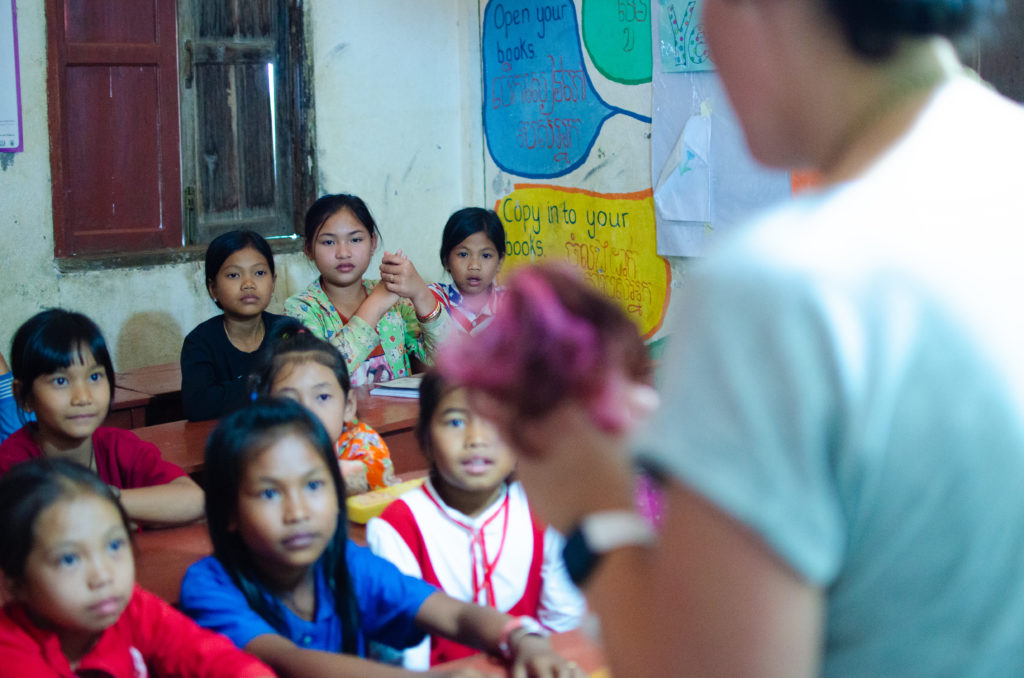
In conclusion, the Cambodian people have demonstrated incredible resilience following the Khmer Rouge governance and the country has made great progress in restoring its economy and society. However, it is clear that many inequalities still exist and affirmative action must be used to advance Cambodia towards achieving the UN SDGs. The FutureSense Foundation is committed to ensuring a positive impact is made in the communities they work with and see the advancement of the UN SDGs for all of Cambodia.
